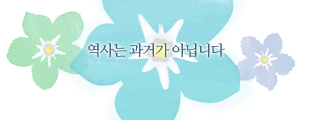이름: 관리자
2001-09-27 00:00:00 | 조회: 3068
The second major issue at the talks was how to exchange POWs. By late 1951, over 170,000 enemy soldiers had been captured by UN forces and the majority of them did not want to go back to North Korea or China. They wanted to live in a free country after the war. The UNC delegates insisted on giving the prisoners freedom of choice, but the Communist negotiators demanded all of their prisoners be sent back to their so-called ‘Communist paradise’regardless of their wishes. The reason was obvious―they did not want to be embarrassed in front of the world. Most of the enemy POWs were held in a huge POW camp on Gujedo, an island near Busan. The highest-ranking prisoner was Col. Lee Hak-goo, who had deliberately surrendered to command the Communist POWs in the prison camp. In April, 1952. Lee led bloody riots which involved a temporary abduction of the American camp commander and the death of 108 prisoners and two American guards.
회담에서 두 번째 主 의제는 포로들을 어떻게 교환하느냐 하는 것이었다. 1951년 말까지 유엔군은 17만명 이상의 공산군 포로들을 붙잡았는데, 이들 중 절반 이상이 북한이나 중공으로 돌아가려고 하지 않았다. 그들은 전쟁 이 끝난 뒤 자유국가에서 살기를 원했다. 유엔군 대표들은 포로들에게 선택 의 자유를 주자고 고집했으나 공산측 대표들은 포로들의 희망은 무시하고 자기네들의 소위 「공산주의 낙원」으로 포로들은 모두 돌려보내라고 요구 했다. 이유는 뻔했다. 그들은 全 세계 앞에서 망신 당하고 싶지 않았던 것이다. 대부분의 적군 포로들은 부산 근처 거제도의 거대한 포로수용소에 수용되었 다. 가장 계급이 높았던 포로는 이학구 대좌로 그는 수용소에서 공산군 포 로들을 지휘하기 위해 일부러 투항했던 자였다. 1952년 4월 이학구는 포로 들의 유혈 난동을 지휘하였는데 이때 포로수용소장(미군)이 일시 포로들에 게 납치당하고, 포로 108명, 미군 경비병 2명이 죽었다.
(38)
As the peace talks bogged down while the battles continued on the ground and in the air―American Saber jet fighters fought Soviet-made MIGs piloted by the Chinese, opening the jet age of air warfare―the American people began to get sick and tired of the war in Korea. They did not want to send their boys to the battlefields any more. Besides, the war efforts made them pay more taxes. The Americans badly wanted a quick end to the war. They would speak their mind at the polls in the November, 1952, presidential election. Dwight David ‘Ike’ Eisenhower, the World War II hero turned Republican presidential nominee, promised that he would visit Korea if he were elected president. On December 2, weeks before his inauguration, President-elect Eisenhower flew to Korea. He chowed and chatted with the GIs including his son, Major John Eisenhower, who was serving with the 3rd Army Division at the time. He also visited ROK army units with South Korean president Rhee. The Americans hoped their new president would end the war quickly. However, even Eisenhower could not do much about the stalemate in the peace talks. Eisenhower and his advisers considered using atomic bombs as South Korean president Rhee had urged them to, but they gave up the idea soon.
전투가 지상과 공중에서 계속되는 동안(美공군 쎄이버 제트 전투기들이 중공군이 조종한 소련제 미그기들과 싸움으로써 항공전의 제트시대가 열렸다 ) 휴전 회담이 침체의 늪에 빠지게 되자 미국 국민들은 한국전쟁에 넌더리 가 나기 시작했다. 그들은 이제 더 이상 그들의 아들들을 전쟁터로 내보내 고 싶어하지 않았다. 게다가 전쟁 지원 때문에 미국민은 더 많은 세금을 내 야했다. 그래서 미국인들은 전쟁이 빨리 끝나기를 간절히 바랐다. 그들은 1952년 11월 대통령 선거에서 투표를 통해서 그들의 이런 마음을 털어놓을 참이었다. 2차 세계대전 영웅에서 공화당 대통령 후보가 된 드와이트 데이 빗 아이젠하워(애칭 아이크)는 자기가 당선되면 한국을 방문하겠다고 공약했다. 대통령 당선자 아이젠하워는 취임 몇 주일 전인 12월2일 한국으로 날아갔다 . 그는 당시 美육군 3사단에 근무중이던 아들 존 아이젠하워 소령을 포함한 미군 장병들과 식사도 같이 하고 환담도 나누었다. 그는 한국의 李承晩 대 통령과 함께 한국군 부대도 방문했다. 미국민은 새 대통령이 전쟁을 빨리 끝내주기를 바랐다. 그러나 아이젠하워도 교착상태에 빠진 휴전회담에 대해 서는 할 수 있는 일이 별로 없었다. 아이젠하워 대통령과 보좌관들은 한국 의 李承晩 대통령이 촉구한 대로 원자탄을 사용할 생각도 해보았으나 곧 그 런 생각을 버렸다.
(39)
The sudden death of Soviet dictator Joseph Stalin on March 5, 1953, speeded up the peace talks. The new Soviet leadership was eager to end the Korean War. Communist China also indicated its willingness to yield in the truce negotiations. On April 30, the two sides exchanged sick and wounded POWs for a starter. In late June, the Communists decided not to force the ‘turncoat’ POWs to come back to their original countries.
There remained one last obstacle to peace, however. It was President Rhee of South Korea who opposed a ceasefire at that point. He wanted to see Korea reunified. Many South Korean citizens and the military were in the same mood. Rhee threatened to pull ROK troops out of the UN Command and have them fight the Communists alone. In an effort to throw cold water on the peace talks, he suddenly released about 50,000 anti-Communist POWs from the camps guarded by South Korean MPs on June 18. (The prisoners had been scheduled to undergo a ‘persuasion session’ in which the Communists would try to talk the anti-Communist POWs into coming back to their fold. Rhee took that wanton action on purpose to make the Americans promise military and economic aid to South Korea after the war.
The Communists walked out of the peace talks in protest to Rhee’s release of the anti-Communist POWs. On July 13, the Chinese mounted a massive attack on the South Korean troops near Finger Ridge and Capitol Hill. It was the last and seventh large-scale Chinese offensive in the war.
They probably wanted to take the Hwachun Reservoir before the war ended. But they failed to occupy that important reservoir on which there was a large hydroelectric power plant.
1953년 3월5일 소련 독재자 요셉 스탈린이 갑자기 사망하자 휴전회담의 속 도가 빨라졌다. 소련의 새 권력자들은 한국전쟁을 빨리 끝내고 싶어했다. 중공도 휴전협상에서 양보할 뜻이 있음을 내비쳤다. 4월30일 양측은 우선 병든 포로와 부상 포로를 교환했다. 6월 하순에는 중공이 「변절한」 포로 들에게 자기들 모국으로 돌아오도록 강요하지 않기로 결정했다. 그러나 평화에의 마지막 장애물이 하나 남아 있었다. 그것은 그 시점에서의 휴전을 반대하는 한국의 대통령 李承晩이었다. 李대통령은 한국이 통일되 기를 바라고 있었다. 많은 한국 국민들과 군부도 같은 분위기였다. 李대통 령은 한국군을 유엔군 휘하로부터 도로 꺼내 단독으로 공산군과 싸우게 하 겠다고 위협했다. 휴전회담에 찬물을 끼얹기 위해 李대통령은 6월18일 갑자 기 한국 헌병들이 경비하고 있던 포로수용소에서 5만여 명의 반공 포로를 석방시켜버렸다(이 포로들은 「설득모임」에 들어가 공산주의자들이 자기네 진영으로 돌아오라고 설득하는 것을 들어보도록 되어 있었다). 李대통령은 전쟁이 끝난 후 한국에 대한 군사 및 경제원조 약속을 미국으로부터 받아 내기 위해 그런 엉뚱한 짓을 저지른 것이었다.
공산측은 李대통령의 반공포로 석방에 항의하여 휴전회담장에서 철수했다. 7월13일 중공군은 「손가락 능선」과 「의사당 고지」 근처에 있던 한국군 에 대한 대규모 공격을 감행했다. 이것은 한국전쟁에서 중공군의 마지막이 자 일곱 번째의 대공세였다. 그들은 아마도 종전이 되기 전에 화천호를 점 령하고 싶어한 것 같았다. 그러나 그들은 수력발전소가 있는 이 중요한 저 수호를 점령하는 데 실패했다.
(40)
Before long, the Communists returned to Panmunjom and at 10 a.m., July 27, 1953, a truce agreement was signed by the two sides. The fighting officially ended 12 hours later at 10 p.m. Even during the final 12 hours, a few soldiers were wounded on both sides. The Korean War came to an end exactly three years, one month, two days and eighteen hours after it had begun.
During the 3-year-long war, 318,500 South Korean soldiers including a former army chief of staff and one third of the ROK Military Academy’s class of 1949 were killed in action. The United States lost 54,246 servicemen including Gen. Walton Walker, commander of the Eighth U.S. Army. (Another Eighth U.S. Army commander, General James Van Fleet, lost his son in Korea.) A total of 3,143 soldiers from 15 UN countries―Australia, Belgium, Canada, Colombia, Ethiopia, France, Great Britain, Greece, Luxembourg, the Netherlands, New Zealand, the Philippines, South Africa, Thailand and Turkey―also died in Korea. An estimated half a million North Korean and Chinese troops, including Mao’s son, were killed in the war they had started. The civilian death toll may have topped two million in both South and North Korea. Innumerable soldiers and civilians on both sides were wounded. And the entire Korean peninsula lay in ruin.
얼마 안 가 공산군들은 휴전회담으로 되돌아왔고, 1953년 7월27일 오전 10 시 양측은 휴전협정에 서명했다. 전투는 12시간 뒤 밤 10시에 정식으로 끝 났다. 마지막 12시간 동안에도 양측 군인 몇 명이 부상을 당했다. 한국전쟁 은 발발된 지 정확히 3년 1개월 2일 18시간 만에 끝이 난 것이다. 3년간의 전쟁에서 전직 육군 참모총장 한 명과 육군사관학교 1949년 졸업생 (8기생)의 3분의 1을 포함하여 31만8500명의 한국군이 전사했다. 미국은 8 군사령관 월튼 워어커 장군을 포함한 5만4246명의 군인을 잃었다 (또 한명 의 8군 사령관인 제임스 밴 플리이트 장군은 아들을 잃었다). 호주, 벨기에 , 캐나다. 콜롬비아, 에티오피아, 프랑스, 영국, 그리스, 룩셈부르그, 네덜 란드, 뉴질랜드, 필리핀, 남아프리카 공화국, 태국, 터어키 등 15개 유엔회 원국에서 온 총 3143명의 군인들도 한국에서 죽었다. 마오쩌둥(모택동)의 아들을 포함하여 약 50만으로 추산되는 중공군과 북한군도 그들이 일으킨 전쟁에서 죽었다. 남북한을 통틀어 200만명이 넘는 민간인들이 죽은 것으로 추산된다. 양측에서 무수히 많은 군인과 민간인이 부상을 당했다. 그리고 한반도 전체는 파괴되었다.
(41)
Kim Il-sung started the war to place South Korea under his control by force, but as a result of the war he lost 1,500 square miles (3,840 square kilometers) of land to South Korea. Korea is
still divided by a 248km-long and 4km-wide buffer zone called the Demilitarized Zone (DMZ). The war was the greatest tragedy the Korean people had ever suffered in their 5,000-year-long history.
Not many historians believe that Kim Il-sung was merely a puppet who initiated the war at the behest of his Soviet and Chinese bosses. Documents made available to the public recently in Russia and China clearly show that it was Kim Il-sung himself who first brought up the idea of war, and begged his bosses, Stalin and Mao, to help him in carrying out the war. Kim’s blind ambition to rule a united Korea under his Communist dictatorship resulted in one of the bloodiest wars in the history of the world. Therefore, Kim Il-sung, who died in 1994, will remain a war criminal whom the Korean people will never forget. A Korean War memorial is in Washington, D.C., next to the Lincoln Memorial. The inscription on the marble wall reads : FREEDOM IS NOT FREE.
―This piece is dedicated to all those who died in the Korean War. ―
金日成은 무력을 사용하여 남한을 자기 지배하에 넣기 위해 전쟁을 시작했 으나 그 전쟁의 결과 그는 1,500평방마일(3,840평방킬로미터)의 땅을 남한 에게 잃었다. 한국은 비무장지대라고 불리는 길이 248㎞, 너비 4㎞의 완충 지대에 의해 아직도 갈라져 있다. 이 전쟁은 한민족이 5000년 역사상 겪은 것 중 가장 큰 비극이었다.
金日成은 소련과 중공의 상전들로부터 명령을 받고 전쟁을 일으킨 허수아비 에 불과했다고 믿는 역사학자들은 그리 많지 않다. 최근에 러시아와 중국에 서 일반에 공개된 서류들은 金日成 자신이 먼저 전쟁 아이디어를 꺼냈고, 그의 상전인 스탈린과 모택동에게 전쟁 수행을 도와달라고 애걸했다는 사실 을 확실히 보여주고 있다. 자신의 공산독재하에 통일된 한국을 지배하려던 金日成의 맹목적인 야망은 세계 역사상 가장 피비린내나는 전쟁의 하나를 초래했다. 그러므로 1994년에 죽은 金日成은 한민족이 결코 잊을 수 없는 전범으로 남게될 것이다.
한국전쟁을 기념하는 공원이 워싱턴의 링컨 기념관 바로 옆에 있다. 그곳 대리석 벽에는 이런 글이 새겨져 있다.
「자유는 공짜로 얻을 수 있는 게 아니다」 ―한국전쟁에서 숨진 모든 이들에게 이 글을 바친다
끝
번호 |
제목 |
이름 |
날짜 |
조회 |
|---|---|---|---|---|
| 67 | 납북인사 북한생활기 - 죽음의 歲月 40 |
관리자 |
01-09-27 | 3022 |
| 66 | 납북인사 북한생활기 - 죽음의 歲月 39 |
관리자 |
01-09-27 | 2779 |
| 65 | 납북인사 북한생활기 - 죽음의 歲月 38 |
관리자 |
01-09-27 | 2733 |
| 64 | 납북인사 북한생활기 - 죽음의 歲月 37 |
관리자 |
01-09-28 | 2661 |
| 63 | 납북인사 북한생활기 - 죽음의 歲月 36 |
관리자 |
01-09-27 | 2837 |
| 62 | 납북인사 북한생활기 - 죽음의 歲月 35 |
관리자 |
01-09-27 | 2979 |
| 61 | 납북인사 북한생활기 - 죽음의 歲月 34 |
관리자 |
01-09-27 | 2820 |
| 60 | 납북인사 북한생활기 - 죽음의 歲月 33 |
관리자 |
01-09-27 | 2836 |
| 59 | 납북인사 북한생활기 - 죽음의 歲月 32 |
관리자 |
01-09-27 | 3116 |
| 58 | 납북인사 북한생활기 - 죽음의 歲月 31 |
관리자 |
01-09-27 | 2661 |
| 57 | 납북인사 북한생활기 - 죽음의 歲月 30 |
관리자 |
01-09-27 | 2806 |
| 56 | 납북인사 북한생활기 - 죽음의 歲月 29 |
관리자 |
01-09-27 | 2615 |
| 55 | 납북인사 북한생활기 - 죽음의 歲月 28 |
관리자 |
01-09-28 | 2627 |
| 54 | 납북인사 북한생활기 - 죽음의 歲月 27 |
관리자 |
01-09-27 | 2820 |
| 53 | 납북인사 북한생활기 - 죽음의 歲月 26 |
관리자 |
01-09-27 | 2635 |
| 52 | 납북인사 북한생활기 - 죽음의 歲月 25 |
관리자 |
01-09-27 | 2748 |
| 51 | 납북인사 북한생활기 - 죽음의 歲月 24 |
관리자 |
01-09-27 | 2557 |
| 50 | 영한 6.25 전쟁사(10) |
관리자 |
01-09-27 | 3067 |
| 49 | 영한 6.25.전쟁사(9) |
관리자 |
01-09-27 | 2683 |
| 48 | 영한 6.25 전쟁사(8) |
관리자 |
01-09-27 | 2553 |

























 TEL : 031-930-6025
TEL : 031-930-6025

